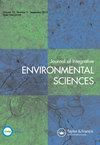在可持续发展入门学士课程中团队学习的经验
IF 3.5
4区 环境科学与生态学
Q3 ENVIRONMENTAL SCIENCES
Journal of Integrative Environmental Sciences
Pub Date : 2022-08-11
DOI:10.1080/1943815X.2022.2108460
引用次数: 0
摘要
基于团队的学习(TBL)是一种结构化的协作学习形式,在学生需要理解大量信息以回答复杂问题的课程中特别有益。在此,我们评估了在本科二年级可持续发展课程中TBL的实施情况。本课程介绍结构化和定量的方法来分析人类对自然环境的影响。它由四个学习单元组成,每个单元侧重于一个特定的环境问题,例如气候变化和栖息地丧失。课程开始时,5-6名学生组成小组。每个学习单元从个人课前准备开始,然后是准备保证过程。学习单元的其余部分包括要求学生将所学知识应用于环境问题的作业。在同侪评估中,学生评估团队成员对团队活动的贡献。自2016年实施TBL以来,考试通过率一直很高(> 82%)。随着时间的推移,学生对TBL的欣赏程度不断提高,2019年有90%的受访者认为TBL的附加教育价值满意或更好。教师重视学生的积极参与。学生们反复提到,他们非常欣赏团队合作,增加了参与度和积极性。TBL最大的挑战是在应用会议期间促进讨论,并确保讨论在保持足够深度的同时保持简洁。TBL现在也在其他课程中实施,结构性地关注协作技能的发展。本文章由计算机程序翻译,如有差异,请以英文原文为准。
Experiences with team-based learning in an introductory bachelor course on sustainability
ABSTRACT Team-based learning (TBL) is a structured form of collaborative learning that is particularly beneficial in courses where students are expected to understand a significant amount of information to answer complex questions. Here we evaluate the implementation of TBL in a second-year undergraduate sustainability course. The course introduces structured and quantitative approaches for analysing human impacts on the natural environment. It consists of four learning units each focusing on a specific environmental issue, such as climate change and habitat loss. Teams of 5–6 students are formed at the beginning of the course. Each learning unit starts with individual pre-class preparation followed by a readiness assurance process. The remainder of the learning unit consists of assignments that require students to apply what they learned to environmental problems. In the peer evaluation, the students assess team members on their contribution to the team activities. The exam pass rates have been consistently high (> 82%) since we implemented TBL in 2016. The students’ appreciation of TBL increased over time, with 90% of respondents rating the added educational value of TBL as satisfactory or better in 2019. Teachers value the active participation of the students. Students repeatedly mentioned that they highly appreciate the collaboration in a team, increased both engagement and motivation. TBL’s biggest challenge is the facilitation of the discussions during the application sessions and making sure that the discussions remain concise while maintaining sufficient depth. TBL is now also implemented in other courses with structural attention to the development of collaborative skills.
求助全文
通过发布文献求助,成功后即可免费获取论文全文。
去求助
来源期刊

Journal of Integrative Environmental Sciences
ENVIRONMENTAL SCIENCES-
CiteScore
3.90
自引率
0.00%
发文量
13
审稿时长
>12 weeks
期刊介绍:
Journal of Integrative Environmental Sciences (JIES) provides a stimulating, informative and critical forum for intellectual debate on significant environmental issues. It brings together perspectives from a wide range of disciplines and methodologies in both the social and natural sciences in an effort to develop integrative knowledge about the processes responsible for environmental change. The Journal is especially concerned with the relationships between science, society and policy and one of its key aims is to advance understanding of the theory and practice of sustainable development.
 求助内容:
求助内容: 应助结果提醒方式:
应助结果提醒方式:


